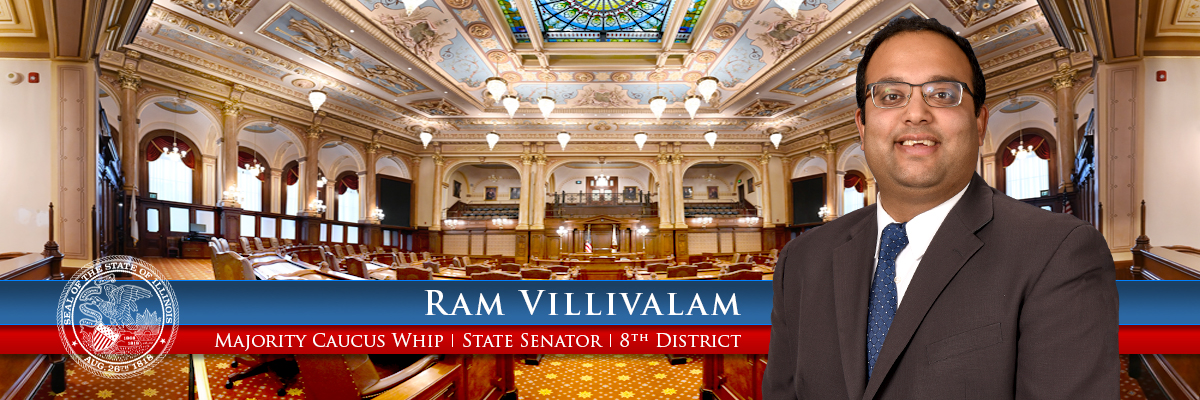Originally published on Daily Line on Nov. 16, 2021.
As Illinois Governor J.B. Pritzker and Chicago Mayor Lori Lightfoot were in Washington D.C. Monday to celebrate the signing of Democrats' long-awaited Infrastructure Investment and Jobs Act, elected officials from across Illinois were already making plans for the $17 billion that will come to Illinois.
According to an analysis by Sens. Dick Durbin and Tammy Duckworth and the White House, the bill will provide for the following spending on Illinois during the next five years:
- $1.7 billion to "improve drinking and wastewater infrastructure throughout Illinois," building on legislative proposals Duckworth has been leading.
- $9.8 billion for federal highway projects.
- $1.4 billion for bridge replacement and repairs. The state could get more if successful in competitive grants.
- About $4 billion "to improve public transportation options across the state."
- At least $100 million for broadband coverage across the state. At present, about 228,000 Illinoisans who do not have broadband. About 2.9 million low-income Illinoisans would get an internet access benefit.
- Approximately $616 million for airport improvements. Under a new Airport Terminal Improvement program, a $5 billion funding pool will be in place through Sept. 30, 2030, for the U.S. Secretary of Transportation to provide competitive grants for "projects that address the aging infrastructure of the nation's airports."
- $149 million to fund the expansion of the electric charging network in Illinois. Plus, Illinois interests could compete for electric car charging grants from a $2.5 billion pool.
- $27 million to protect against wildfires.
- $22 million to protect against cyberattacks.
The $17 billion investment is intended to help modernize infrastructure across the state while also creating both temporary and long-term jobs in all 102 counties.
House Majority Leader Greg Harris (Chicago) wrote in an email to The Daily Line on Monday that the spending is a “huge win,” saying it “will put into expanding mass transit, extending the Red Line to 130th St and moving the CTA bus fleet to electric are great investments.”
“Also, billions to begin the work of replacing lead water pipes and to expand broadband access are important investments for impacted communities,” Harris continued. “Great improvements for our State and thousands of good paying jobs as well.”
The call for these investments goes back to the Obama administration, including the more than $2 billion it would take for the CTA’s long-promised Red Line Extension project. Kyle Whitehead, managing director of the Active Transportation Alliance, pointed to a 2018 report that argued extending the Red Line would increase access to jobs within a 30 minute commute by 82 percent.
Whitehead also highlighted the need for Democrats in Washington to continue to push for the nearly $2 trillion Build Back Better Act proposed by President Joe Biden, which he said “ includes more than $40 billion in investments targeted to advance racial and environmental justice in transportation that could make up for some gaps in the infrastructure bill.”
Audrey Wennick, Director of Transportation at the Metropolitan Planning Council, reiterated Whitehead’s call for both responsible and additional spending.“It is very important that we are thoughtful about how we spend these limited resources,” Wennink said. “The money alone will not be transformative — what matters is how we spend it. We must focus on maintenance of the large transportation system we already have in Illinois.”
Wennick also highlighted the need for transportation spending focused on the safety of pedestrians and bicyclists across the state.
“We must place a priority on designing roads differently to reduce crashes, given the sharply increasing trend of Illinois traffic deaths,” she said. “Every year more than 1,000 people die on Illinois roadways, and numbers of injured pedestrians are steadily increasing.”
The issue of pedestrian safety was discussed by the Chicago City Council’s Committee on Pedestrian and Traffic Safety last week. That meeting focused on the City’s long-running Vision Zero plan to eliminate traffic deaths. Despite those efforts, the city saw an uptick in traffic deaths last year, according to city transportation officials..
The new resources from the Infrastructure Investment and Job Acts will likely provide additional resources that the City Council is likely to re-address in the new year.
The federal Congressional Budget Office estimates that during the 2021-2031 period, the $1.2 trillion infrastructure bill will decrease direct spending by $110 billion, increase revenues by $50 billion, and increase discretionary spending by $415 billion. On net, the legislation would add $256 billion to projected deficits over that period.
Few question the need for the state to upgrade its infrastructure. In 2018, the American Society of Civil Engineers gave Illinois’s infrastructure a grade of C-, calling it mediocre at best. They especially focused on the state’s need to invest in its roads, public transit, airports and water waste.
What remains unclear is how exactly the funds will be spent. Last week a group of elected officials called for $2.7 billion to be spent to modernize the Eisenhower expressway, a road leading from the Western Suburbs into Chicago that many Illinois residents know to be under construction seemingly every few years.
Senate President Don Harmon (D-Oak Park), who was among thosecalling for the investment in I-290, also highlighted other benefits coming from the bill.
“I look forward to the transformative projects Illinois will be able to begin as a result of this legislation,” a spokesperson for Harmon wrote in a statement. “Every region of Illinois will benefit. We have the opportunity to modernize our infrastructure, create good-paying jobs, improve public transportation, increase access to broadband Internet and further our commitment to green energy.”
Other projects certain to get attention are the massive investments already underway at O’Hare Airport and the longtime push of Mayor Lightfoot and various Chicago Aldermen to address the thousands of toxic lead pipes running under Chicago.
The details of how the federal infrastructure bill will impact the $44.8 billion Rebuild Illinois Capital Plan and the $3.7 billion Chicago Works remain unclear. Illinois Senator Ram Villivalam, who chairs the Senate Transportation Committee, shared his priorities for all three going forward.
“The Bipartisan Infrastructure Investment and Jobs Act will bring billions of dollars to Illinois to build on the progress we've made with the Rebuild Illinois program. Expanding infrastructure in historically disinvested communities and ensuring an efficient and transparent spending process remain my top priorities with these funds."
Kevin Artl, president and CEO of the American Council of Engineering Companies of Illinois, applauded the additional investment in the state.
“Illinois’ engineers are ready to get to work to make these historic investments a reality for our state.”
Regardless of how these programs are rolled out, both political parties are certain to try to find an advantage.
In a press release from the Democratic Party of Illinois, Executive Director Abby Witt announced a digital campaign attacking the four Illinois Republicans that voted against the bi-partisan federal capital bill.
“Unfortunately, instead of working in a bipartisan way for their communities, Reps. Bost, Davis, LaHood, and Miller followed Donald Trump’s lead, letting petty partisanship get in the way of a good deal for their constituents.”
Expect elections in 2022, 2023 and 2024 to be peppered with references to bringing home the bacon.




